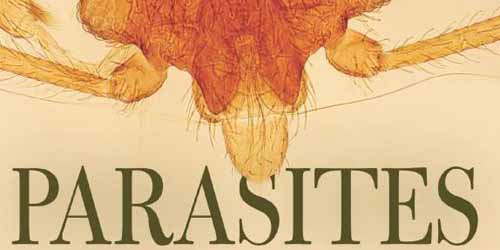When it comes to phrases in the English language that people least wish to hear in reference to themselves, those around them, the place they presently are, were, or in the near future might possibly be, “parasite infestation” certainly ranks very close to the top of the list. This is not at all surprising, of course; for as just about anyone who has ever given the matter much thought well knows, the range of parasites that can potentially inhabit the human body may produce effects ranging from irritating to nightmarish. Yet there is much about the natural histories of the amoebae, worms, and other creatures we classify as parasites that is, if one can get past the initial revulsion the subject causes in many of us, indeed quite fascinating – not only in the biological sense but in regard to the astonishing effects these creatures have had upon both human as well as ecological history. Thus to help any and all who are interested in discovering just how influential parasites have been and continue to be in our lives, Rosemary Drisdelle has in her recent book Parasites: Tales of Humanity’s Most Unwelcome Guests provided a superb introduction to and overview of parasites in some of their many fascinating and historically significant forms.
Consider, for example, the blood fluke Schistosoma hematobium. A water-living trematode found in the Middle East, Africa, and Asia that can make its way into the human bloodstream by directly penetrating the skin, it may – as Drisdelle explains – have been a significant contributor to the fall of the ancient city of Jericho. Or Ascaris lumbicoides, a globally common species of giant nematode roundworm that quite possibly played a role in Captain James Cook’s bizarre behavior which led to his death in the tropic Pacific. Then of course there are the recountings of more recent cases, from the Canadian housewife whose battle with Trichinella spiralis and subsequent legal case led to significant changes in the way pork is now handled in Canada, the United States, and Europe, to the young man British man who was not only plagued by an incurable infestation of topical scalp parasites but also by the fact that no doctor who examined him could see them.
Such tales are not mere color commentary added to an otherwise dry biological overview; they are the central threads around which Drisdelle masterfully weaves the biological explanations of her many diverse exemplary species. Nothing has been included for mere shock value; each species included has been chosen for either its historical significance, it present-day influence, or in many cases both. This in itself is an important element of the latter portion of the book – the idea that the parasites that afflicted our ancestors are often the same ones that still afflict much of humanity today. They have co-evolved with us and, as some research is beginning to show, in regard to a few species we may even physically benefit from them (a possibility that indeed defies the proper scientific definition of the very word parasite but may nevertheless be true).
Toward the end of the book, Drisdelle expands her portrait of the biology of parasites and their inter-relationships with humans from the specific to the global. Venturing into such larger topics as public health, socio-economics, and international politics, she illuminates some of the more significant attempts to rid our world of particular parasites, and makes clear the reasons these programs have either (mostly) succeeded or miserably failed. As a result, the reader, upon completing a full reading of the book, will likely find his or her knowledge of parasites greatly enlarged not only in terms of what they are and how they live but also in regard to how we live with them and why in some cases our co-existence may be inevitable and unalterable. Admittedly, there are elements included in the text that some particularly sensitive readers may find discomforting; however if these portions can be endured in pursuit of the greater good of a much expanded as well as enriched understanding of this too often neglected topic, the end result of being able to think about the subject in a far more nuanced and complex manner will more than compensate for any momentary queasiness experienced along the way.
 Title: Parasites: Tales of Humanity’s Most Unwelcome Guests
Title: Parasites: Tales of Humanity’s Most Unwelcome Guests
Series: n/a
Author: Rosemary Drisdelle
Publisher: University of California Press
Format: Hardcover, 280 pages
ISBN: 9780520259386
A University of California Press podcast interview with the author is available.
In accordance with Federal Trade Commission 16 CFR Part 255, it is disclosed that the copy of the book read in order to produce this review was provided gratis to the reviewer by the publisher.

